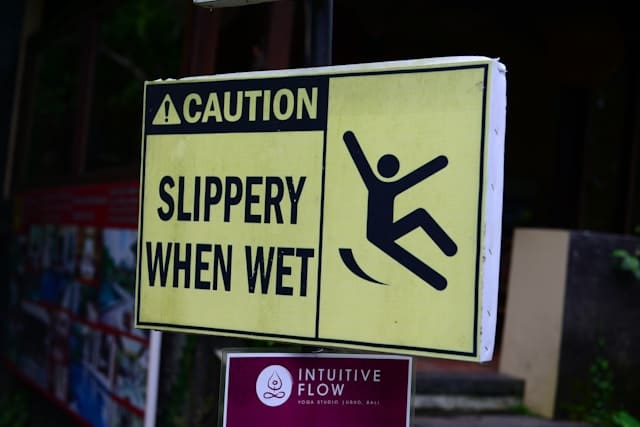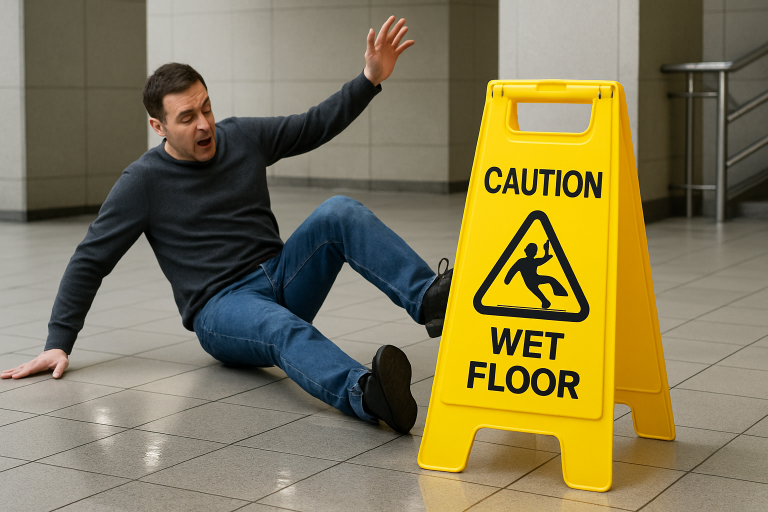
A Slip and fall accident can happen without warning, especially in busy cities like Las Vegas, where high foot traffic and a variety of properties increase the risk. Knowing how to respond in the crucial moments following a fall can determine the outcome of your recovery and your ability to secure compensation for your injuries. If you or a loved one has suffered a slip and fall, taking the right steps can help protect your medical and legal interests. For immediate legal support and guidance, consider reaching out to a Las Vegas Personal Injury Attorney: Friedman Injury Law.
Prompt action not only safeguards your health but also preserves important evidence that can prove invaluable in a legal case. Many slip and fall victims are unsure about what to do after an accident, and this uncertainty can lead to avoidable mistakes that impact their future claims. Being prepared—and knowing your rights—makes all the difference in navigating what to do after a fall.
Seek Medical Attention
Your well-being is paramount after a slip and fall. Even if your injuries appear minor, seek a thorough examination from a medical professional as soon as possible. Injuries like concussions, fractures, or internal bruising might not present symptoms right away but could develop into more serious issues if not promptly treated. Additionally, obtaining medical records immediately following your accident can be pivotal if you pursue a legal claim, as they establish a direct connection between your injuries and the fall.
Delaying or skipping medical care could allow the property owner’s insurance company to argue that your injuries were not severe or were unrelated to the incident, potentially undermining your claim. According to the Centers for Disease Control and Prevention (CDC), falls are a leading cause of injury nationwide, and immediate medical care is crucial for both health and legal reasons.
Report the Incident
Once your immediate medical needs are addressed, report the accident to the property owner, manager, or appropriate staff, such as security personnel. Request that the details of your fall be documented in an official incident report, and ask for a copy for your own records. This report becomes an important piece of evidence by formally recording the circumstances, timing, and location of the accident.
Take note of the person with whom you spoke, as well as the time and date the report was filed. If possible, ensure that the report includes your account of what happened rather than an oversimplified summary. This documentation can be critical when dealing with insurance companies or during settlement negotiations.

Document the Scene
If your injuries permit, use your phone or another device to take clear pictures and videos of the accident scene. Pay particular attention to capturing any hazardous conditions, such as wet floors, uneven ground, debris, or poor lighting, that may have contributed to your fall. Make sure to take multiple photos from different angles, both close-up and wide shots, to provide a detailed perspective of the area.
Your visual documentation helps prevent property owners from changing or repairing the hazardous conditions after the fact and then denying the extent of the hazard that caused your accident. These images can also serve as compelling evidence in court or during an insurance claim dispute.
Gather Witness Information
Witnesses can provide critical third-party accounts to support your claim, especially if their version aligns with your own. Collect names, addresses, and phone numbers from anyone who saw the incident or the conditions that contributed to your fall. Ask witnesses if they would be willing to provide a written or recorded statement about what they observed. Their unbiased testimony can play a substantial role, particularly if there are conflicting reports from property owners or insurers.
Preserve Evidence
Preserving physical evidence from the accident is an often-overlooked but vital step. Keep your clothing and footwear in the same condition they were in immediately after the accident. Do not wash or repair them, as they may contain substances or damage that demonstrate what happened. If possible and safe, collect a sample of any substance or material you slipped on to help reinforce your claim. This type of evidence can be especially persuasive during negotiations or litigation. Proper preservation of evidence, coupled with timely action, helps to create a strong foundation for your potential claim.
Avoid Admitting Fault
After an embarrassing accident, it may feel natural to apologize or blame yourself for falling. However, avoid making statements such as “I’m so clumsy” or “It was my fault.” Remarks like these can be used by property owners or their insurance representatives as evidence of your liability, potentially reducing or jeopardizing your ability to seek fair compensation. Instead, keep communication factual and focused on what occurred without assigning blame.
Consult a Personal Injury Attorney
Consulting with a knowledgeable personal injury attorney is one of the most crucial steps to take after a slip and fall. An experienced attorney can help clarify your rights, evaluate the strength of your claim, and assist in negotiating with insurance companies. They will also ensure all evidence is preserved and legal deadlines are met, providing peace of mind during a stressful time. Skilled representation is invaluable, especially when facing large corporations or property owners with their own legal teams.
Understand Nevada’s Statute of Limitations
It is essential to be aware of Nevada’s statute of limitations for personal injury and slip-and-fall claims. According to state law, you generally have two years from the date of the accident to file a claim. Failing to do so could permanently bar you from seeking compensation, no matter how legitimate your injuries. Act promptly and consult legal counsel early to avoid risking your right to recovery.
By taking these essential steps, you can maximize your protection and opportunities for recovery following a slip and fall accident in Las Vegas. While every case is unique, prior preparation and immediate action are always in your best interest. When in doubt, consult a qualified professional to ensure your rights are fully protected.






